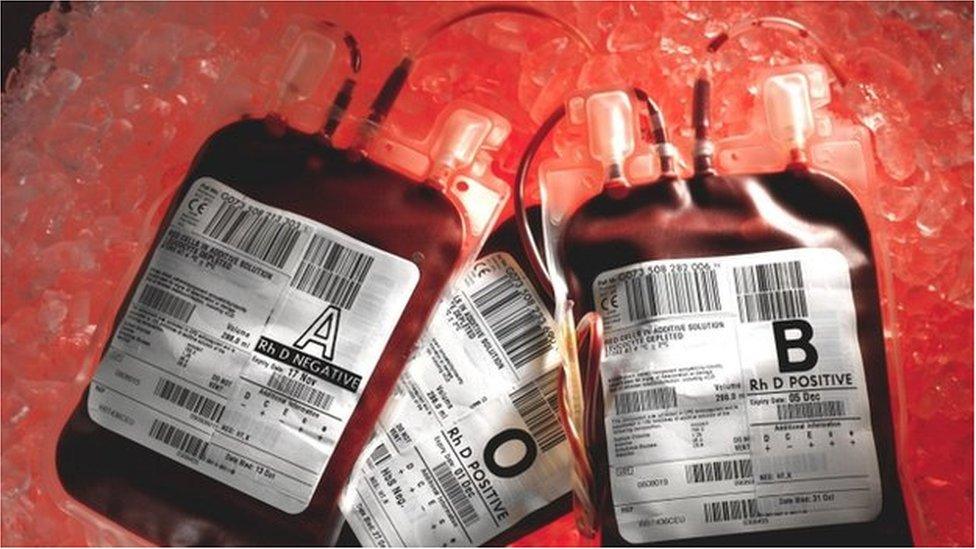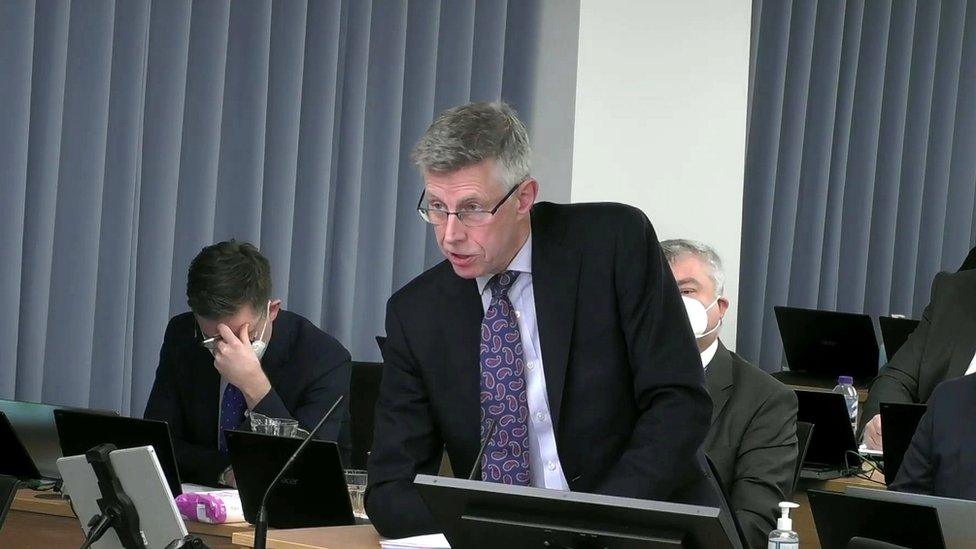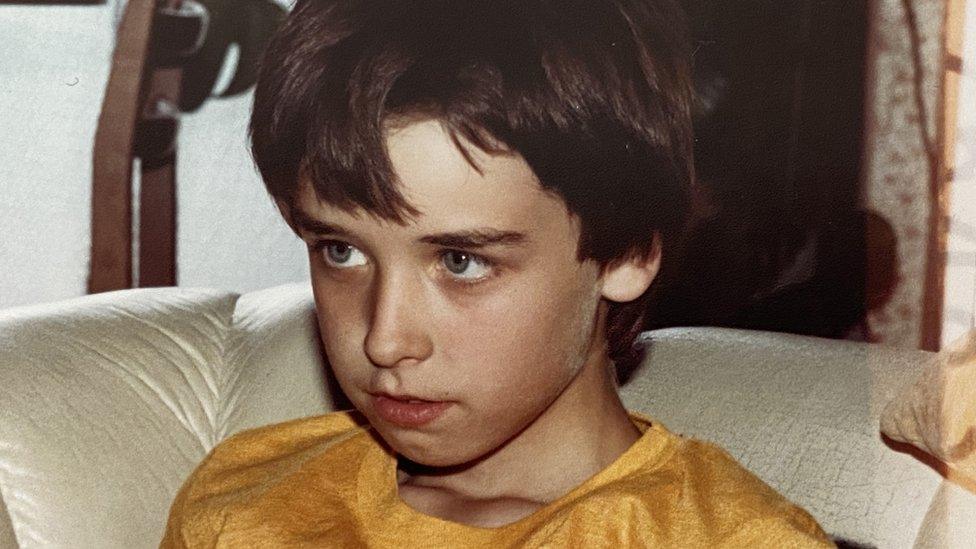Infected blood scandal: Inquiry hears Belfast Trust apology
- Published

Belfast Health Trust has apologised to people infected and affected by contaminated blood products.
At the public inquiry into the UK-wide infected blood scandal, the trust said it it recognised the harm, hurt and distress that had been caused.
Up to 30,000 people were given contaminated blood in the 1970s and 1980s.
It has been called the biggest treatment disaster in NHS history.
On Friday, the Infected Blood Inquiry heard closing statements from the Belfast Trust and Northern Ireland Blood Transfusion Service (NIBTS).
On behalf of the Belfast Trust, Philip Aldworth KC addressed those watching proceedings directly.
"The infected and affected community in Northern Ireland is entitled to an apology for the part played by it and by its legacy organisations," he said.
"Belfast Health and Social Care Trust says to each and every one of that community we are sorry.
"Some may feel that an apology is long overdue, but it is no less sincere because of the passage of time."
He told the inquiry that "historical reliance" on commercial concentrate blood products "may well have shaped or influenced product selection to a significant degree".
It was accepted in earlier hearings that HIV, Aids and Hepatitis were often not recorded as the primary cause of death on death certificates.
Mr Aldworth said it was "not uncommon" for this to be done at the request of bereaved families.
"Northern Ireland is a small place. Communities tend to be close knit. In many instances, that is and was a positive feature of our society.
"Support networks are strong. The downside, however, can be maintaining privacy.

Philip Aldworth KC said the infected and affected community in Northern Ireland is entitled to an apology
"In the 1980s and 1990s stigma sounding HIV and HCV [Hepatitis C] was very real. Families could be ostracised with devastating consequences.
"To spare them the prospect of that additional pain and anguish, not mentioning HIV or HCV on a death certificate was, as Dr McNulty described it in her written statement, seen as an act of humanity to a grieving family.
"It was not done to conceal the fact that those conditions had been caused by infected blood or blood products."
'Burning agony of loss'
On behalf of the Blood Transfusion Service, Mark Robinson KC apologised "unreservedly", and paid tribute to those affected.
"Whether it was in person or on a video-link, the evidence was heartbreaking. It was clear that there was a burning agony of loss across many, many years," he said.
"The NIBTS acknowledges the courage, the fortitude, the dignity and decorum of the infected and affected, not only during the course of this inquiry, but also in the many many years waiting for the inquiry."
A statement read by Mr Aldworth on behalf of the Department of Health said it was ready to respond to recommendations from the final report when it was published.
"This commitment will not end with the final findings and recommendations of the inquiry, as these will help to inform and shape the delivery of healthcare in Northern Ireland in the future," the statement added.
In August 2022, the government announced that 4,000 UK victims would receive interim payments of £100,000, including about 100 in Northern Ireland.
In September, modelling by a group of academics commissioned by the public inquiry estimated that 26,800 people were infected after being given contaminated transfusions between 1970 and 1991.
The study calculated that 1,820 of those died as a result, but that the number could be as high as 3,320.
The inquiry, chaired by retired High Court judge Sir Brian Langstaff, began taking evidence in 2018.
The interim compensation announcement in August came after Sir Brian argued there was a compelling case to make payments quickly - saying victims were on borrowed time because of their failing health.
Payments have been made to those whose health is failing after developing hepatitis C and HIV, and partners of people who have died.
But families have complained that many people affected, such as bereaved parents, missed out.
Related topics
- Published6 October 2022

- Published17 August 2022
